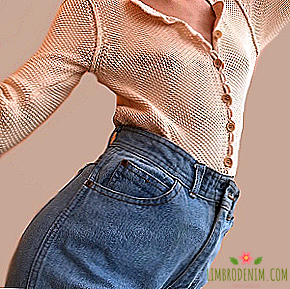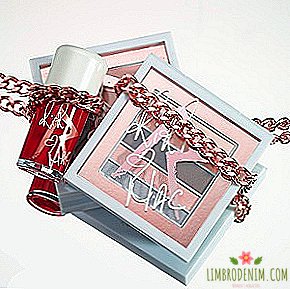Clean beauty: Why "harmless" cosmetics do not need all

margarita virova
Movement towards conscious consumption in the beauty sphere does not stop gaining popularity - one should expect that the majority of brands in the coming years will try to meet the buyer who is keen on environmental issues. We have already told what cruelty-free-cosmetics are, showed proven brands that do not test their products on animals, and recommended simple rules for building a conscious beauty routine. We continue to explore the topic and find out whether you need to make high demands on the contents of all cosmetic jars.
The phrase "clean beauty" refers to the choice in favor of cosmetics, which is not only not tested on animals and (preferably) produced in recyclable packaging, but also does not contain ingredients that can harm the consumer. The idea naturally grew out of the long-time hobby of a certain part of the audience of organic cosmetics and fashion for a conscious lifestyle. Consistent supporters of “pure beauty” need to avoid plastic particles, parabens, sulfates, and other substances that invariably lead in hazard ratings, and opt for natural, manufactured without harming the nature of the substances, or “approved” synthetic components - for example, hyaluronic acid. But with such recommendations should be careful.
It is not at all difficult to find and successfully introduce into the daily care the funds created entirely from innocent extracts, water and oils - there are some in bottomless stores like iHerb, in the lines of major brands, and in hard-to-find niche brands. Checking the "purity" of the composition is also easy: there are dozens of sites at your service, where each component of at least some popular cans is measured by a toxicity scale or is marked as safe or undesirable. Moreover, you just do not have to limit yourself to a bottle of rosehip oil and mineral powder: brands that practice such an attentive approach will have excellent cleansers, moisturizing serums, masks of all varieties, shampoos and natural peels. In general, the buyer probably will not have to deny himself or save on other pleasures in the name of proper cosmetics.
Natural compositions remain primarily an image story - and it is important to keep this in mind when fashion returns in a new guise.
The main problem of the growing enthusiasm for this fashion is that it is based on the belief that the substances that are put in cosmetics can be harmful to health - but this setting is not supported by serious evidence. Supporters of "pure beauty", for example, are still afraid of parabens, which have been attributed to the risk of developing breast cancer because of estrogenicity - the results of a study on rats have since been repeatedly challenged, but the myth is still alive. It is customary not to trust Sanskrin with filters of inorganic origin, silicones, sulphates, synthetic fragrances: even if the harm of this or that substance is not proven, the "pure" philosophy assumes that it should be avoided. The clean beauty gurus are advised not to pay attention to the promises on the banks and independently check the compositions, but you will have to check the lists and articles that are published on resources like Goop - in the same place where they are favorable about "holistic" care.
Meanwhile, the means mixed solely on natural substances, experts continue to criticize precisely for the fact that they are not suitable for everyone. Among the components of natural origin are many that increase the sensitivity of the skin, cause irritation and can disrupt the natural cycles of skin functioning with prolonged use - cosmetic chemist Paul Runner in one of his posts even listed examples of clearly unhealthy "organic matter". In addition, parsley extract and shea butter certainly will not be suitable care for skin with acne, pigmentation, atopic dermatitis and other features, and pink water does not keep up with the renewing properties of synthetic retinol. Natural formulations remain primarily an image story - and it is important to keep this in mind when fashion returns in a new guise.
It’s difficult to make your lifestyle eco-friendly at one time, especially if this intention concerns restoring order in your cosmetics bag: the beauty industry will remain a major source of pollution of all types for a long time, it’s impossible to keep track of the origin of all components today, and with the environment is still critically low. Often this becomes not only the ground for new initiatives in the field of rational consumption, but also a good help for the cultivation of delusions. "Pure beauty" simply does not exist, as well as hypoallergenic for all formulations and universal components - so that serums with the effect of detox and pharmaceutical form of packaging should not be counted more than any other entertainment trends that captured the industry.
Cover: pauchi - stock.adobe.com




